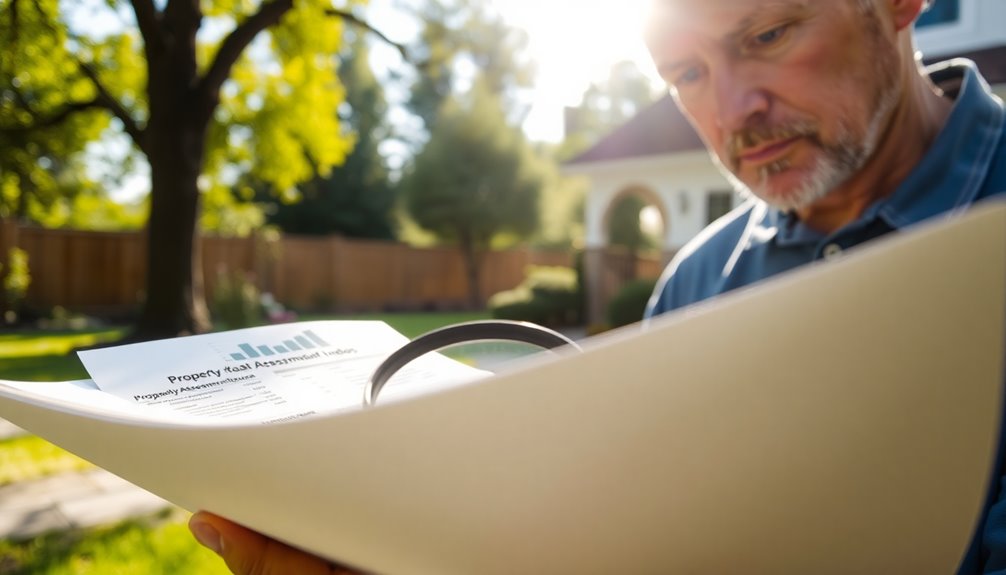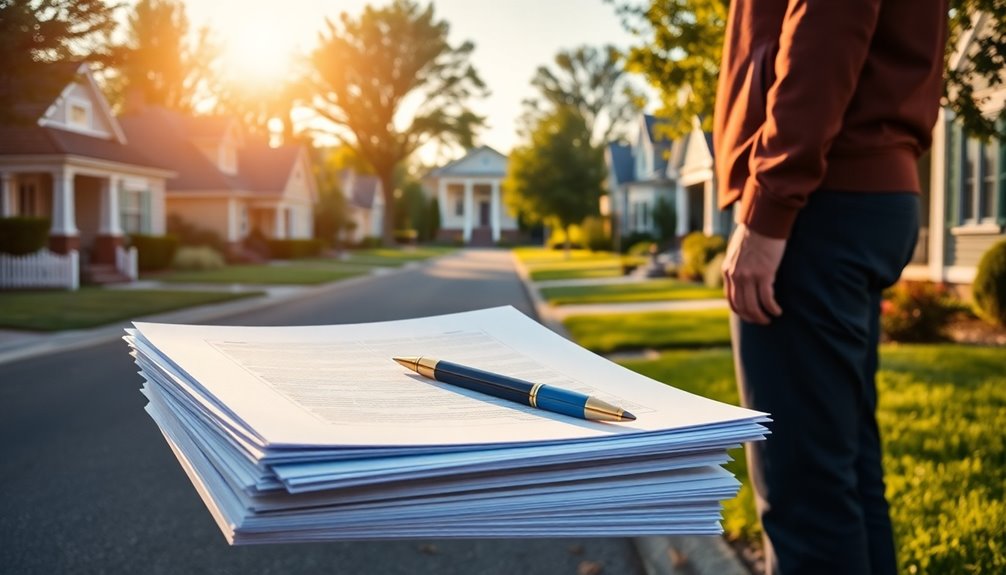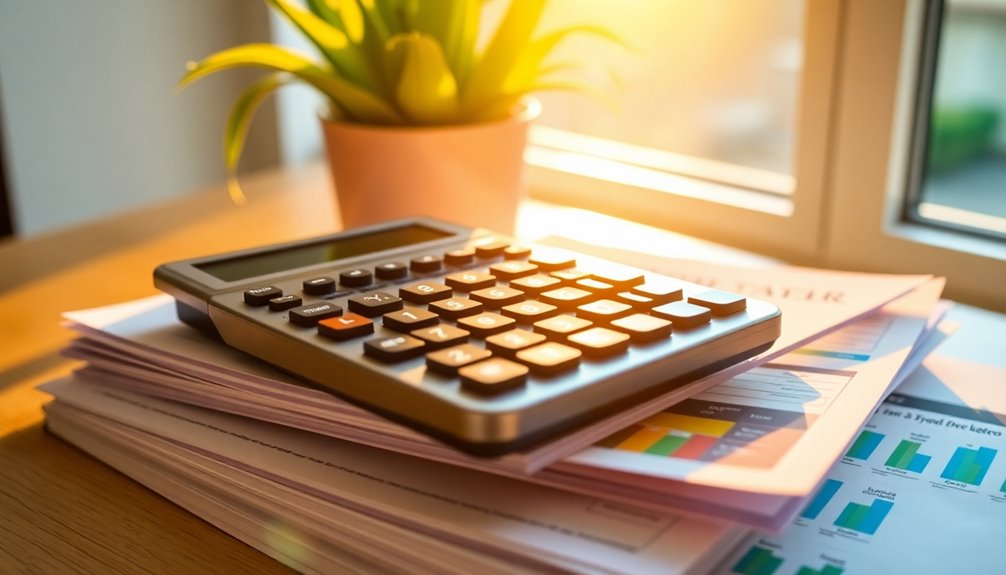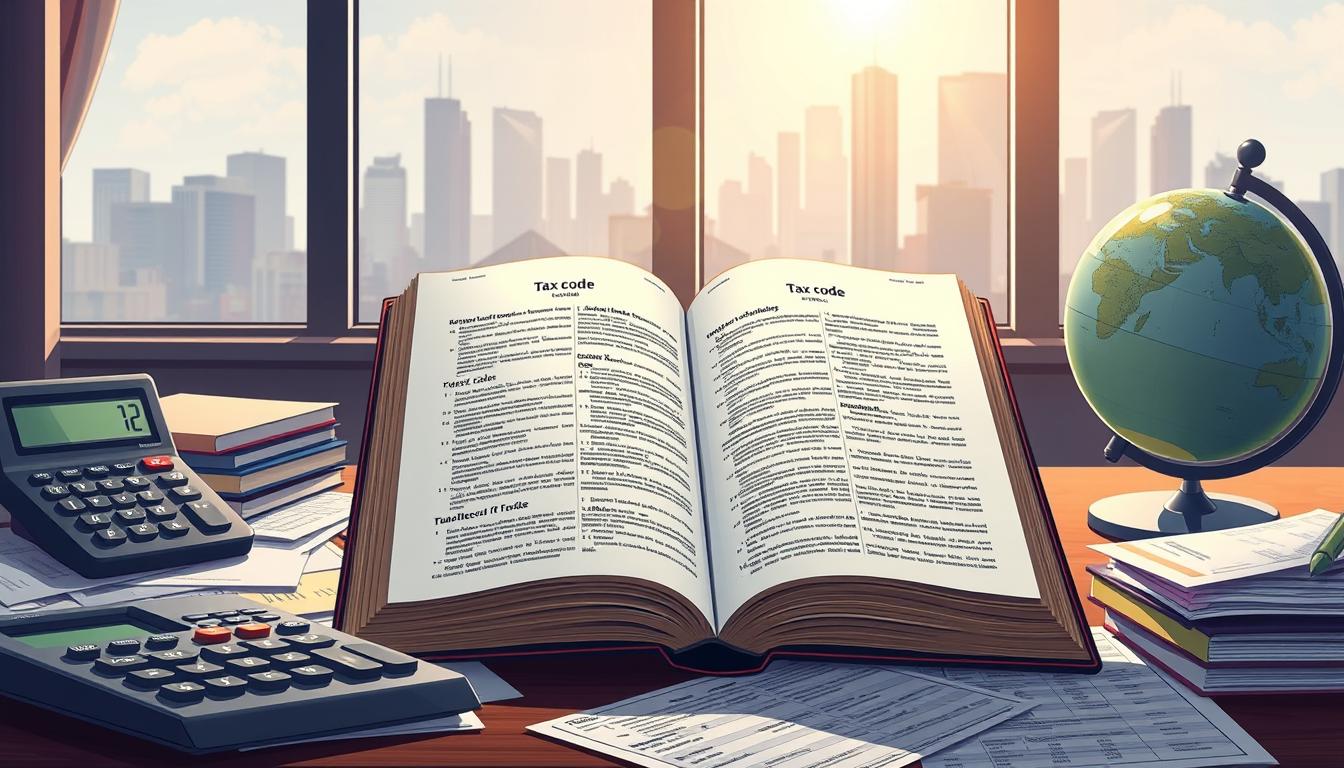To lower your property taxes in New York, start by understanding your property assessment and checking for inaccuracies. If mistakes are found, gather evidence and file a grievance by the deadline. Explore tax exemptions like the STAR program or senior citizen benefits to reduce your tax burden. Consider green building initiatives for potential tax breaks and stay informed about local laws that affect rates. Don't forget to verify your tax bill for any errors. Each step can lead to significant savings, and there's plenty more you can do to further reduce those taxes.
Key Takeaways
- Review your property's assessed value for accuracy and compare it to similar properties in your area.
- File a grievance using Form RP-524 by the deadline to contest unfair assessments.
- Explore available property tax exemptions such as STAR, senior citizen, or disability exemptions to reduce tax liability.
- Invest in green building initiatives to qualify for property tax exemptions or abatements.
- Engage with local authorities and community resources to stay informed about tax relief options and changes in local tax laws.
Understand Property Assessments

How can you effectively lower your property taxes in New York? Understanding property assessments is key. Your property's assessed value directly impacts your tax bill, as it's based on the estimated market value determined by the local assessor.
In NYC, this market value considers factors like rental income, vacancy rates, and property characteristics. You should regularly review the tentative assessment roll to ensure accuracy. Additionally, the NYC DOF assesses properties annually, which means it's essential to stay informed about changes that could affect your property's valuation.
Check your tax bill for discrepancies in property size, square footage, or any additional features. Comparing your assessed value to similar properties in your neighborhood can highlight potential errors.
Remember, the assessed value is often a percentage of the market value, and various factors influence it, such as location, recent sales of comparable properties, and overall property condition.
If you believe your assessment is too high, gather evidence like photos and appraisal reports to support your case. If needed, consider hiring an independent appraiser for a second opinion.
File a Grievance

Filing a grievance can be a crucial step in your quest to lower property taxes in New York. To start, you'll need to complete Form RP-524, also known as the "Complaint on Real Property Assessment." Make sure to include your name, contact information, and the property's details, such as its location and identification number. If someone else is filing on your behalf, they must provide their information, too.
Pay attention to deadlines, as the critical date is usually the fourth Tuesday in May, known as Grievance Day. It's wise to confirm the exact date with your local assessor's office, as it can vary. Missing this deadline means you'll have to wait until the next assessment cycle to contest.
When filing, outline the grounds for your grievance—whether it's an unequal or excessive assessment, misclassification, or unlawful criteria. Additionally, understanding the local tax laws is essential for managing multiple properties effectively.
To strengthen your case, gather evidence like sales data from comparable properties, appraisal reports, and any relevant photos. Presenting a well-supported grievance increases your chances of a successful reduction in your property taxes.
Seek Property Tax Exemptions

Exploring property tax exemptions can significantly lower your tax burden in New York. If you're a senior citizen aged 65 or older with an annual income of $58,399 or less, you might qualify for a senior citizens exemption that reduces your assessed property value by up to 50%.
Similarly, if you have a disability or are a veteran, spouse, or Gold Star parent, you could also be eligible for valuable exemptions. Additionally, understanding the homestead exemption can help protect your primary residence from certain monetary judgments, which may offer further financial relief.
Other exemptions include those for members of the clergy, crime victims, or individuals injured while assisting victims. Depending on your situation, these exemptions can provide substantial savings on your property taxes.
Be mindful of application deadlines; most exemptions require submissions by March 15. It's crucial to check with your local assessor for specific deadlines and the types of exemptions available in your area.
Ensure you submit all necessary documentation on time to avoid missing out on potential savings.
Explore STAR Programs

If you're looking to cut down on your property taxes in New York, tapping into the STAR programs can be a smart move.
The School Tax Relief (STAR) program offers two main benefits: Basic STAR and Enhanced STAR. To qualify for Basic STAR, your property must be your primary residence, and your combined income can't exceed $500,000. This could save you around $293 on your school taxes. Additionally, participation in local property tax abatement programs can further reduce tax burdens.
If you're 65 or older, you may qualify for Enhanced STAR, which has a lower income cap of $93,200 for the 2023-2024 school year. This benefit can provide a reduction of approximately $650.
To apply, new homeowners need to register with the New York State Department of Taxation and Finance. If you already have the STAR exemption, you can continue receiving it or switch to the STAR credit.
You don't have to re-register if you're already enrolled; your benefits will come automatically or as a check.
Don't forget that surviving spouses may still retain the Enhanced STAR benefit.
Explore these programs to make your tax burden a little lighter!
Take Advantage of Green Initiatives

Green initiatives can significantly reduce your property taxes while promoting sustainability. By investing in green buildings, you could qualify for a Real Property Tax Exemption, which could last up to ten years. To be eligible, your property must meet certification standards like LEED, and the construction or reconstruction project value must exceed $10,000, starting on or after January 1, 2013. Furthermore, the municipal corporation must adopt legislation for exemptions to ensure you benefit from this program.
If you're in NYC, consider installing a green roof. If at least 50% of your roof is covered with greenery, you may receive a tax abatement of $5.23 per square foot, with a cap of $200,000. This not only lowers your taxes but also provides environmental benefits. Additionally, take advantage of the Section 179D deductions for energy-efficient upgrades in commercial buildings. These can offer up to $5.00 per square foot in tax deductions, significantly reducing your project costs. Don't overlook the Solar Electric Generating System tax exemptions, which can save you between 5% and 8.75% on your property tax bill.
Consider Condo and Co-Op Abatements

Condo and co-op abatements can offer significant savings on your property taxes, making them an attractive option for homeowners. To qualify, ensure your property is your primary residence and falls under tax class 2.
Keep in mind that you can't own more than three residential units in the same development, and at least one must be your primary residence. Certain programs, like Mitchell-Lama or tax exemptions such as J-51, render your property ineligible for this abatement.
The application process is straightforward but requires your co-op or condo board to act on your behalf. They must notify the Department of Finance about any changes in ownership or eligibility by February 15.
If you're a new condo owner, remember to file the real property transfer tax (RPTT) form as well. Additionally, the unit must be primary residence to qualify for abatement eligibility.
The tax savings can be substantial, ranging from 17.5% to 28.1%, depending on your property's assessed value. For properties assessed at $50,000 or less, you'll get the maximum 28.1% reduction.
This abatement has been extended until 2026, aligning your property taxes more closely with those of single-family homes, benefiting you directly.
Investigate Additional Tax Relief

Investigating additional tax relief options can significantly reduce your property tax burden in New York. Start by exploring the STAR Credit, which benefits owner-occupied primary residences in eligible school districts. If your income is $275,000 or less and you paid school property taxes last year, you might qualify for the Basic or Enhanced STAR, especially if you're a senior earning under $60,000.
Check out the Real Property Tax Credit if your household gross income is $18,000 or less. You'll need to have lived in the same NY residence for at least six months, and your property's market value must be $85,000 or less. An important aspect to note is that the Enhanced STAR targets seniors and individuals with disabilities specifically for additional tax relief.
Seniors aged 65 and older can apply for the Senior Citizen Homeowners' Exemption (SCHE), which offers up to a 50% property tax exemption for those earning under $58,399. Similarly, the Disabled Homeowners' Exemption (DHE) provides the same benefit for homeowners with disabilities.
If you live in NYC, consider the Enhanced Real Property Tax Credit, which can provide up to $500 for households earning less than $200,000, and look into other tax relief options tailored to your situation.
Review Your Property Tax Bill

Once you've explored various tax relief options, the next step is to closely review your property tax bill for any inaccuracies.
Start by checking the property descriptions. Verify that your property's address and type are correct, and ensure the number of units and square footage match reality. Look for errors in land improvements or features, along with the proper classification of your property.
Next, verify the assessment values. Compare the assessed value with similar properties in your area and make sure it reflects current market conditions. Check for any recent changes in property value that mightn't be accounted for. Remember that 1.1 million property valuations are distributed by the NYC Department of Finance, which can help you establish a baseline for your property's worth.
Don't forget to identify errors in calculations. Review the math on your tax bill to ensure accuracy, including exemptions and tax rates.
If you spot any discrepancies, it's crucial to act quickly. Contact your local assessor's office to report and correct these errors, providing evidence like photos or appraisal reports if needed. Follow up to ensure changes are made.
If you're still unsatisfied, consider filing a Request for Review or appealing to the New York City Tax Commission. Taking these steps can help lower your property taxes effectively.
Stay Informed on Local Laws

Staying informed about local laws is crucial for effectively managing your property taxes in New York. Local tax laws can change frequently, impacting property tax rates and available exemptions. By keeping up-to-date, you can identify new opportunities for tax reductions that might be available to you.
New York offers various property tax exemptions, such as the STAR school tax relief exemption, which can significantly lower your tax burden. These exemptions cater to specific groups, including veterans, seniors, and persons with disabilities. However, some may come with specific requirements, like affordable housing criteria.
It's also essential to track changes in tax programs. For instance, the 421-a tax exemption has particular eligibility criteria and deadlines that you need to be aware of. Local government actions, like those from the New York City Council, can influence tax collection and enforcement.
Engaging with local authorities is key. Don't hesitate to contact the local assessor's office for information on available exemptions and application procedures.
Participating in public hearings and community meetings can further help you stay informed about any upcoming changes in tax laws that may affect you.
Frequently Asked Questions
How Often Are Property Assessments Conducted in New York?
In New York, property assessments are typically conducted annually. Each year, assessors update property values to reflect current market conditions, ensuring fairness in tax distribution.
You'll find that some areas might reassess less frequently, but annual updates are common to comply with state laws. Key dates, like the valuation date on July 1, are crucial for understanding how your property's value is determined and how it impacts your tax obligations.
What Documents Are Needed to File a Property Tax Grievance?
To file a property tax grievance, you'll need several key documents.
Start with the property information, including the address and tax map number. Fill out the grievance form RP-524 and provide a detailed explanation of your reasons.
Gather evidence of value, like recent appraisals, comparable sales, or your purchase contract.
Don't forget to include any supporting documentation, such as financial statements or environmental reports, to strengthen your case.
Can I Appeal a Denied Property Tax Exemption?
Yes, you can appeal a denied property tax exemption.
First, file a written protest within the specified timeframe, including your contact information and taxpayer ID.
Clearly state the nature of the denial and provide supporting facts about the fair market value you believe is accurate.
Make sure to include any relevant laws that back your claim.
Once submitted, your appeal will be reviewed, and you may have the opportunity for a conference to discuss it further.
Are There Income Limits for All Property Tax Relief Programs?
Yes, there are income limits for various property tax relief programs.
For the STAR Program, the income limit for 2025-2026 is $107,300, while the Enhanced STAR requires enrollment in the Income Verification Program.
The Senior Citizen Homeowners' Exemption and Disabled Homeowners' Exemption also have income caps of $50,000 for a 50% exemption and $58,400 for a partial exemption.
Be sure to check specific requirements for each program to ensure you qualify.
How Do I Check if My Property Is Being Over-Assessed?
To check if your property's being over-assessed, start by reviewing the tentative assessment roll, which lists your property's estimated market and assessed values.
Compare these values with similar properties in your area to see if your assessment seems high. Use the Residential Assessment Ratio (RAR) to ensure the assessed value aligns with market conditions.
If you find discrepancies, gather evidence and consider discussing your assessment with your local assessor or filing a grievance.
Conclusion
Lowering your property taxes in New York is possible with the right approach. By understanding property assessments, filing grievances, and seeking exemptions, you can significantly reduce your tax burden. Don't forget to explore STAR programs and green initiatives, which can offer additional savings. Staying informed about local laws and reviewing your tax bill regularly will keep you ahead of potential increases. Take these steps, and you'll be well on your way to lowering your property taxes effectively.









